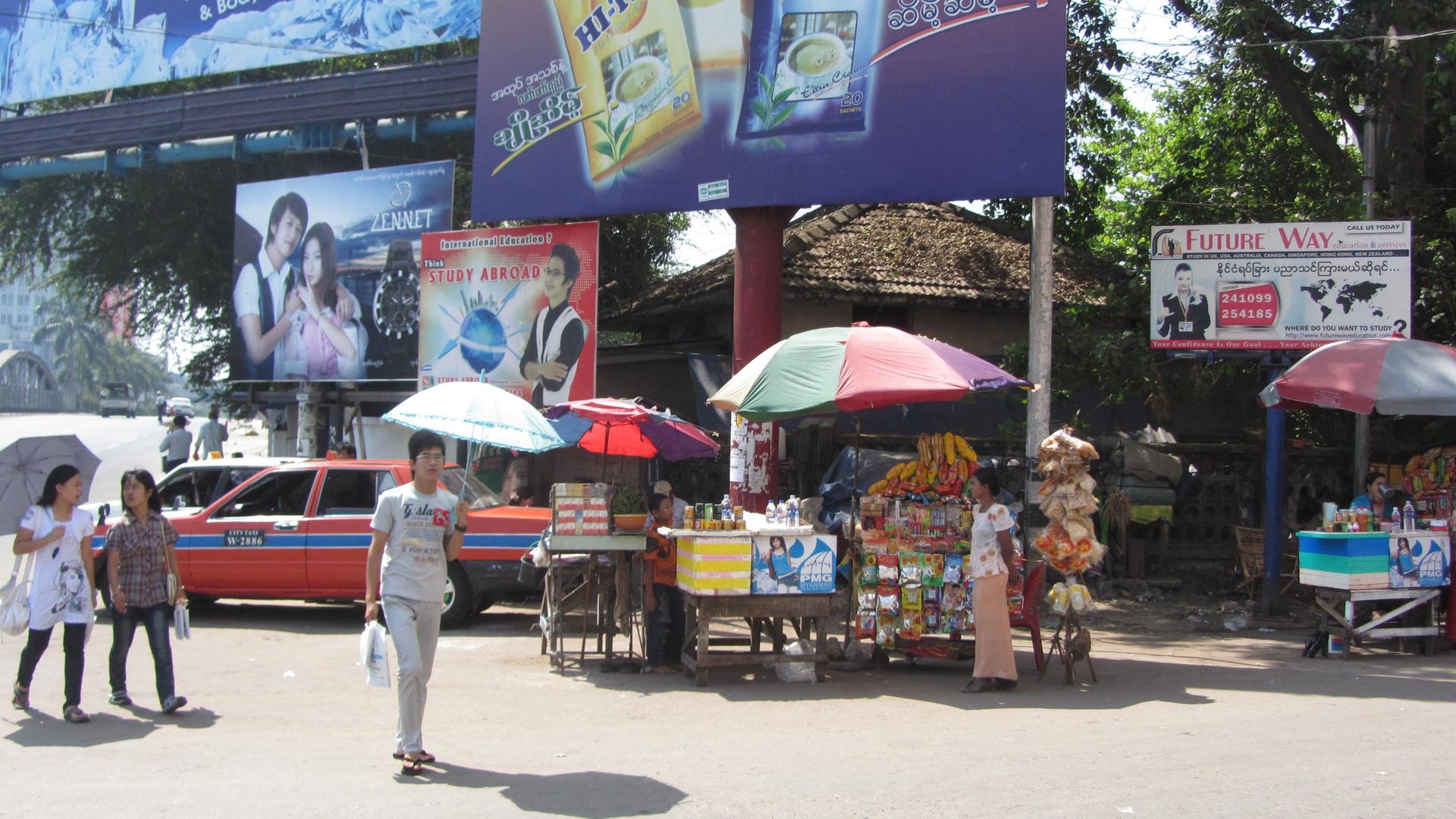Leapfrogging with smartphones, Myanmar joins the world
People walk by a street vendor in Yangon.
Do you remember the first time you made a phone call? Pwint Htun does. She was a young girl in rural Burma, in the early ‘80s.
“Because my dad was working in Malaysia,” she says. “My mom said, ‘OK, everybody, we’re going to make a phone call,’ and we got all dressed up.’ We didn’t have a phone at home, so we had to go to where the tower was, this microwave antenna, where the operator was. We called my dad, and my grandparents, who lived 14 miles away. I just remember that first phone call was a really, really big deal.
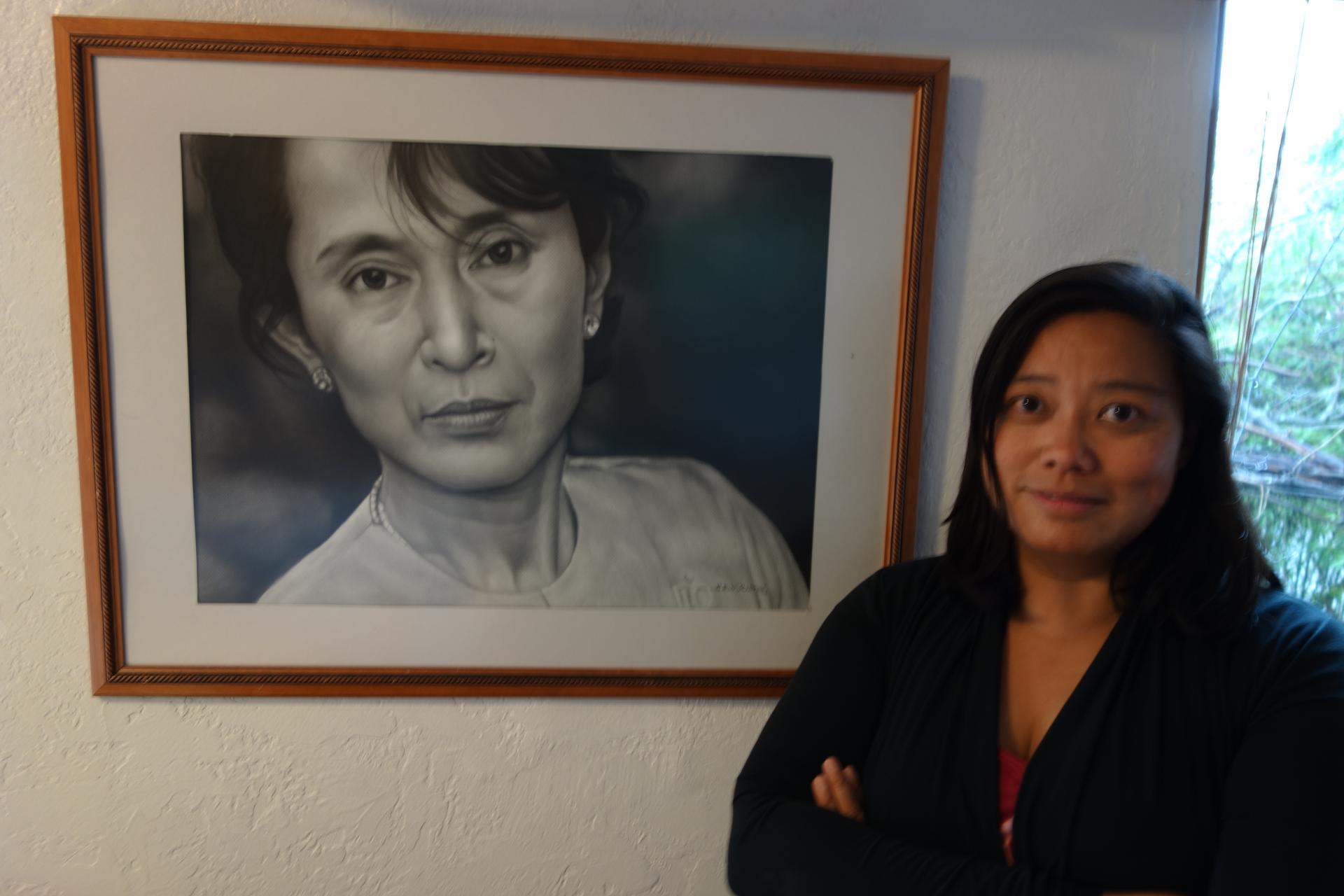
Pwint has had quite a journey since then. She’s now a telecommunications whiz, and is helping Burma — now called Myanmar — get connected. Much has happened since her first phone call, to her, and to her country.
When Pwint was growing up, the country was called Burma. And Burma was isolated. For almost 30 years, it was run by General Ne Win. He was kind of anti-modern, paranoid and superstitious. He liked to consult fortune tellers to figure out what policies to enact.
At one point, the fortune tellers told him he could face a threat from the right, so he should make a symbolic move in that direction to protect himself. He decreed that traffic, which had been driving on the left side of the road, in the British tradition — Burma had been a British colony — should switch to the right side of the road.
Another time, the fortunetellers told him that nine was a lucky number for him. A protective number. So he changed the country’s currency system, and put all units of currency in Base 9. Seriously. The first time I visited Burma, there were notes in denominations of 15, 45, 90.
And all this would be funny, except people who had the old currency lost a lot of money. Nor was there much to laugh at when Ne Win chose a date that added up to his lucky number, 9, for the final crackdown on pro-democracy demonstrators. It was September 18 — 1+8=9, plus the month of September was the ninth month.
More than anything, Ne Win ruled through fear, and violence. His army fought wars with more than a dozen ethnic minority insurgent groups. Hardly any new investment was coming in, so for years, Burma was kind of a living time capsule.
There were old colonial buildings in Rangoon, left by the British, that were kind of falling apart but still kind of beautiful.
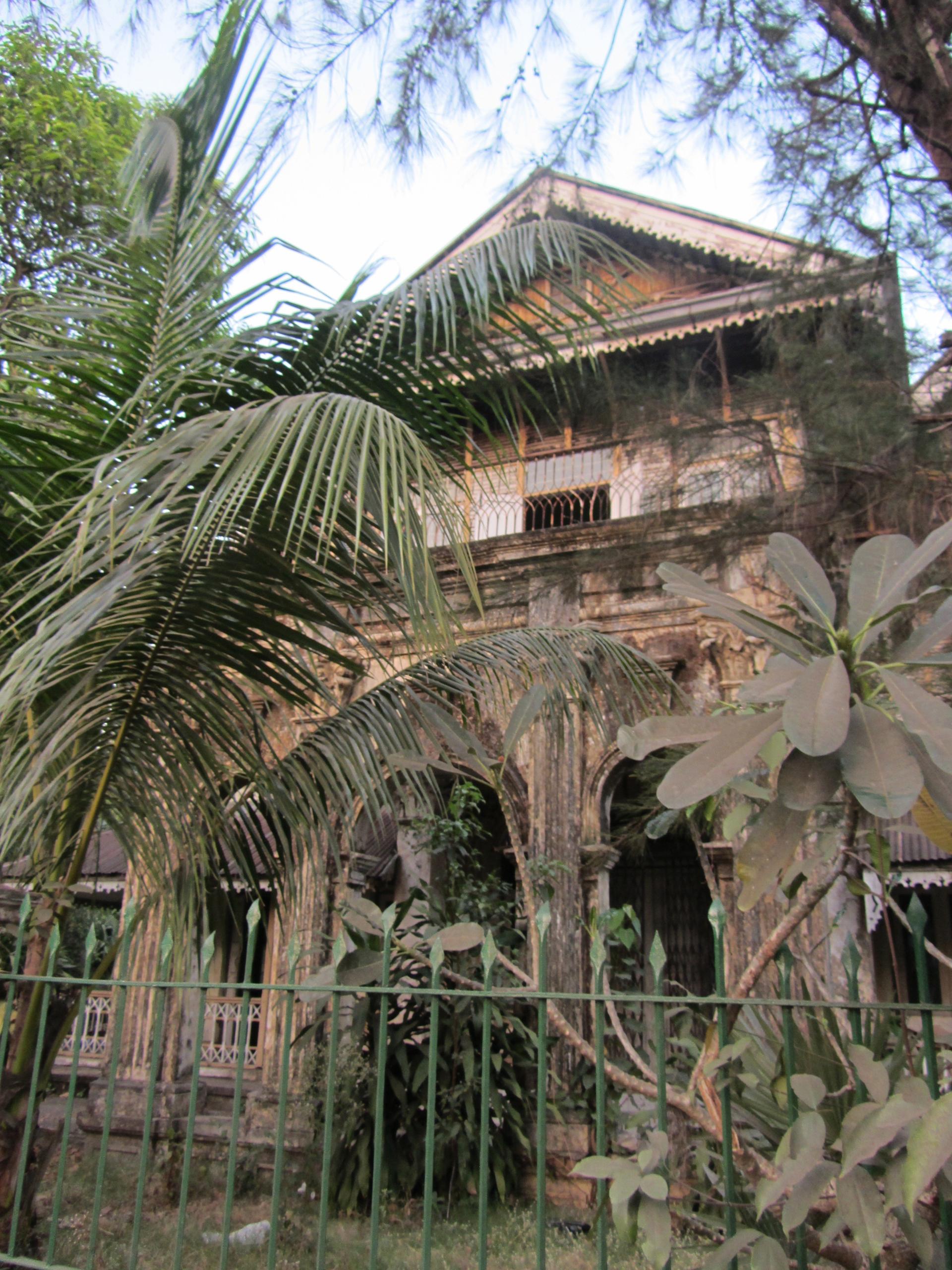
There were vintage cars, because, for years, newer cars weren’t allowed to be imported. Out in the countryside — even that level of modern life hadn’t penetrated. That’s where Pwint Htun grew up. That’s why the new telephone tower, when it came in the early ‘80s, was such a big deal.
And then, Pwint’s family moved to Rangoon. She was about 14 in 1988 when students and others started filling the streets in front of her family’s apartment and calling for democracy.
“The students were really integral in organizing these protests. Some were maybe four or five years older than me, at most. So I felt totally with them in spirit, and wanted to go and be part of the protest. And a few of the days, my mom allowed us to. But most of the time we were closed in behind barbed wire, because our apartment was next to City Hall. And the military tightened the security of the surrounding streets.”
The military opened fire on these students more than once, and by the time of the final crackdown by the military junta in September, hundreds, possibly thousands had been killed. An especially bloody day came early. August 8, 1988 — that’s 8-8-88 — had been chosen as a day for national demonstrations, because the fortune-tellers said all these 8s was auspicious. Well, not so much for the demonstrators who got shot.
“When the soldiers were gunning down the people, any student who had a gunshot wound or some kind of health problem, going to the hospital, there were police waiting at the hospital and throwing them in jail, any time they were coming into the hospital,” Pwint says. “So the people who were shot and bleeding, they didn’t dare to go to the hospital. … A lot of them looked for alternative ways of getting help. So my mom and her students set up a clinic in the basement of a church."
Because that was seen as an act against the regime, the family decided to leave Burma once the junta had cleared the streets. They ended up in a refugee camp in Thailand, where Pwint faced the double challenge of trying to communicate when she couldn't speak Thai, and trying to learn on her own, because her mother couldn’t afford tuition at an international school. An aid worker from Seattle offered to tutor Pwint in physics and chemistry, then sponsored her to go to college in Seattle. Pwint got a degree in engineering, and dove into telecommunications work. Actually, from her first year in college, she gravitated toward the chance to connect that telecommunications work offered.
“My first job, the first year I was in Seattle, was selling long-distance for Sprint. They gave employees free long-distance calls during breaks,” she says. "That was the most wonderful perk anybody could give me. I was so homesick. That’s what I was missing so much. That’s what I was missing so much, the connectivity, just being able to hear their voice.”
So she called her mom and sisters in Thailand, and her grandparents in Burma. But what she was hearing from her grandparents, about what life was like in Burma under the junta, wasn’t good.
“They constantly lived in fear,” she says. “Once, I was taking to my grandfather, and a third person was listening to our conversation and interjecting his own opinions.” She laughs at the memory, but not at what it felt like to live like that. “It was this Orwellian environment, where people were so afraid that they could be arrested at any time, because people were listening in, in all conversations.“
Related: The Facebook-loving farmers of Myanmar
And that’s how it was, for Pwint’s relatives who remained in Burma, and for millions of others, for years.
Meanwhile, Aung San Suu Kyi, who’d emerged as a pro-democracy leader in those heady 1988 demonstrations, spent many of those years under house arrest. The junta was uneasy about her popularity, and certainly about her pedigree. She was the daughter of Burma’s independence hero Aung San, kind of their George Washington. Aung San was assassinated before he could really do much as the leader of the country. Aung San Suu Kyi had her own ideas about how to move the country forward, but the military didn’t want to listen.
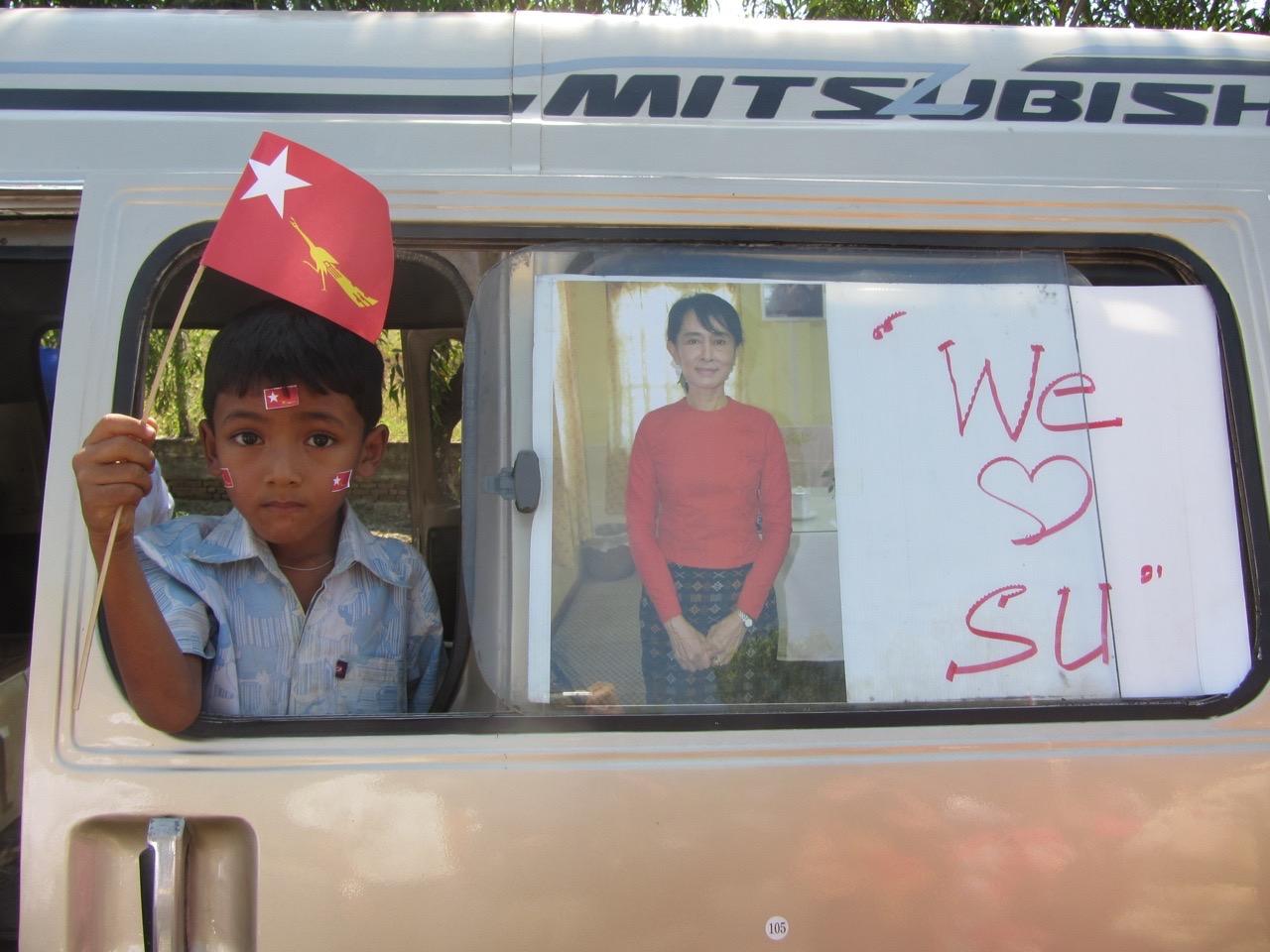
And then, it all started to change. Myanmar’s leaders released Aung San Suu Kyi from house arrest in 2010. They started talking to her. Tight authoritarian rule started to loosen. A new generation of leaders had come up the ranks, led by President Thein Sein, and they were more pragmatic. They looked at the fact that Burma’s half century of isolation hadn’t helped it much, and felt overreliance on China —which had been the case since the ’88 crackdown — wasn’t healthy for the country’s national interests.
Myanmar started to open up. Pwint, who had in the interim worked at T-Mobile, had helped create the first Android phone, and had ideas about how to bring it home.
“I had always dreamed of bringing connectivity to Burma in one form or another,” she says. “I went back to Burma one more time, in 2012, and tried to find out why SIM cards were $500 to $1000. And I tried to meet with the incumbent state operator, this mobile network operator called MPT, which was the only one, just to figure out why it was so expensive, and what’s going on.”
The meeting was disheartening. She offered her expertise and found that the government monopoly, MPT, wasn’t interested.
“The people who were running the network at the time, there was so much graft, so much corruption. The vendors, were selling the same equipment, to Burma for a lot more than it’s worth, and giving the kickbacks to these corrupt individuals in the ministry. That was what shocked me. So I thought, with that much corruption that’s actually engrained, that’s going to be hard to change.”
Such practices may have enriched a few officials, but they were holding Myanmar back at a time when it was otherwise trying to open up to the world. Foreign investors and other visitors found that only a couple of hotels had reliable Internet connections.
Clearly, a little deregulation was in order. And eventually, it came, helped by the fact that, in mid-2012, a new minister and deputy minister took charge at the Ministry of Communications and Internet Technology, with new ideas about how to run their sector. Prices dropped, and Burmese rushed to get their own mobile phones. According to statistics from the GSMA (Groupe Speciale Mobile Association, an association of mobile operators and related companies), at least one in three Burmese now has a cell phone, and one in five has a smart phone.
“It has been a really, really exciting change to see,” Pwint says. “Myanmar has gone from having very little connectivity, to having some of the fastest growing mobile connectivity in history.”
And this has transformed lives. Not only can Burmese call, text and email friends, family and colleagues, they’ve fallen hard for Facebook and Viber (similar to WhatsApp), are sharing news, photos, videos and are dishing the dirt on corrupt and otherwise misbehaving local officials.
In rural areas, where electricity is scarce, some Burmese have been able to buy cheap Chinese-made solar panels, with just enough power to charge their phones and provide a little light in the evening. Many of the smartphones are Chinese knock-offs, too, some going for as little as $25.
Beyond the usual uses for smart phones, Burmese have also started using them to make micropayments in markets, kind of like ApplePay, but for tiny amounts — 10 cents for a bunch of scallions, 50 cents for some eggs. They’re also using a technology similar to M-PESA, which itself was created in Kenya in 2007, to transfer money to each other without needing to go through a bank. That's useful, because few Burmese have a bank account.
“If you’re someone who has a medical emergency come up, and you don’t have enough cash, instead of taking a huge loan out, or selling, taking your daughter dropping her out of school, just so you can manage this crisis, you can call around different family members or relatives, and ask them to transfer money to you as a loan,” Pwint says. “The loan doesn’t have to be where they’re based physically, anymore. So if they have family members in other parts of the country, they can help.” Pwint says this is especially helping women in Burma, who otherwise, she says, almost never qualify for bank loans or credit.
Another way Burmese are using their new phones is taking free online classes, especially in subjects not taught in Myanmar’s underfunded and over-censored education system.
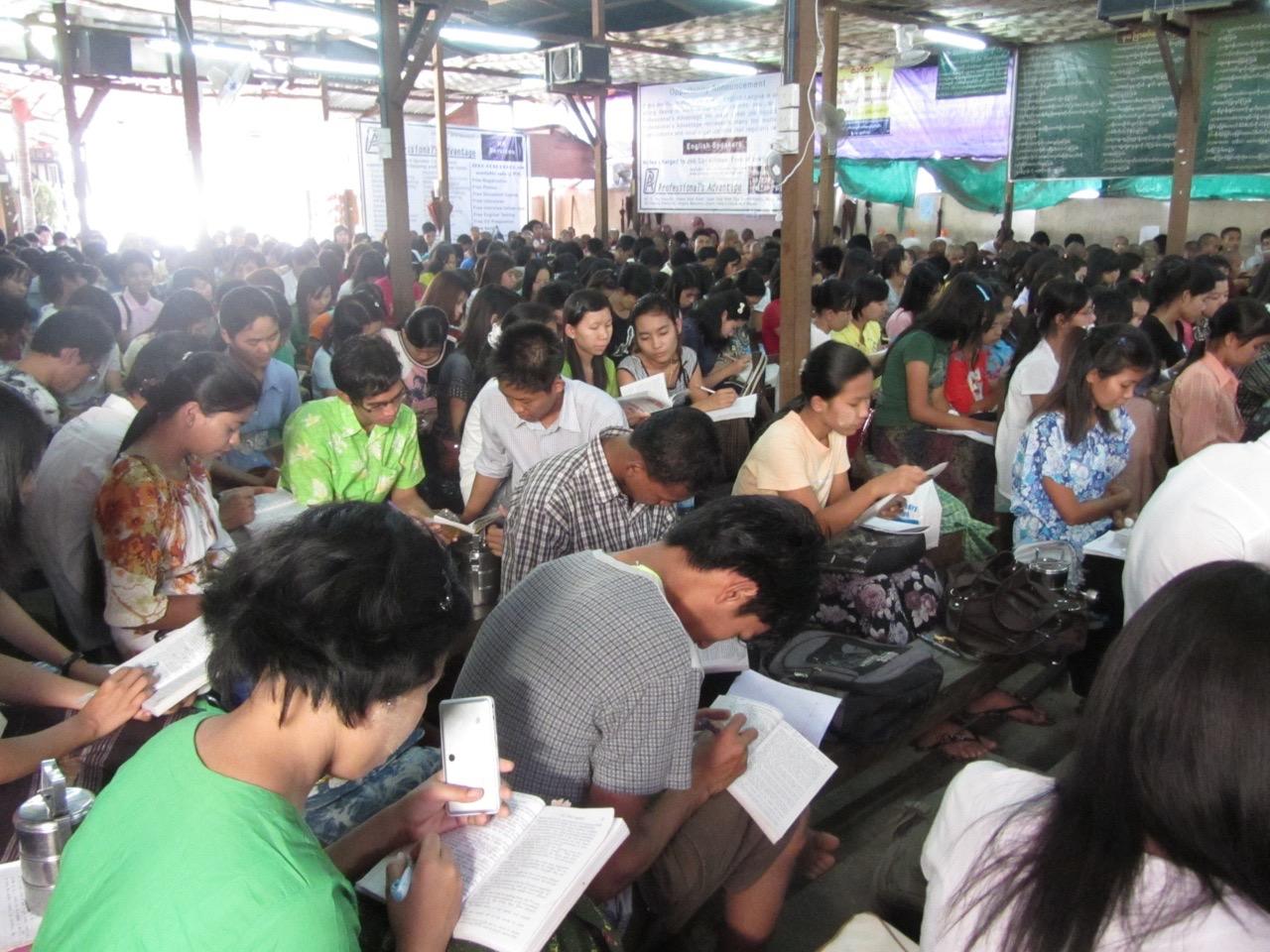
Add to all this a national election last November, in which the pro-democracy National League for Democracy won a landslide victory, and Burmese have many reasons to feel good about the future. Challenges remain — continuing tensions, and sometimes clashes, with ethnic minorities on the border, ethnic cleansing against the 1.3 million Rohingya Muslims, some of whom have roots in Myanmar going back more than a century, but whom many Burmese Buddhists see as outsiders who deserve no rights.
And the military has stepped back, but hasn’t stepped down. According to a constitution it wrote, it retains 25 percent of all legislative seats, and can attack ethnic insurgents regardless of whether the ruling party agrees. Aung San Suu Kyi is still negotiating to try to get the military to drop the clause in the constitution that bars her, as the spouse of a foreigner, from becoming president. And other negotiations continue, too, before the new government takes office in March.
"We are still kind of in the ‘wait and see’ stage, in many ways,” Pwint says. “I think I will feel a lot more relieved when the NLD party is in power."
Pwint says she hopes Myanmar’s generals can learn from places like Indonesia, which transitioned from military to civilian rule in a way that genuinely empowered the population and allowed considerable economic growth. Pakistan serves for her as a negative example — what she hopes her country never becomes.
Whatever happens, she says, the fact that Myanamar is getting more connected by the day, is something to celebrate.
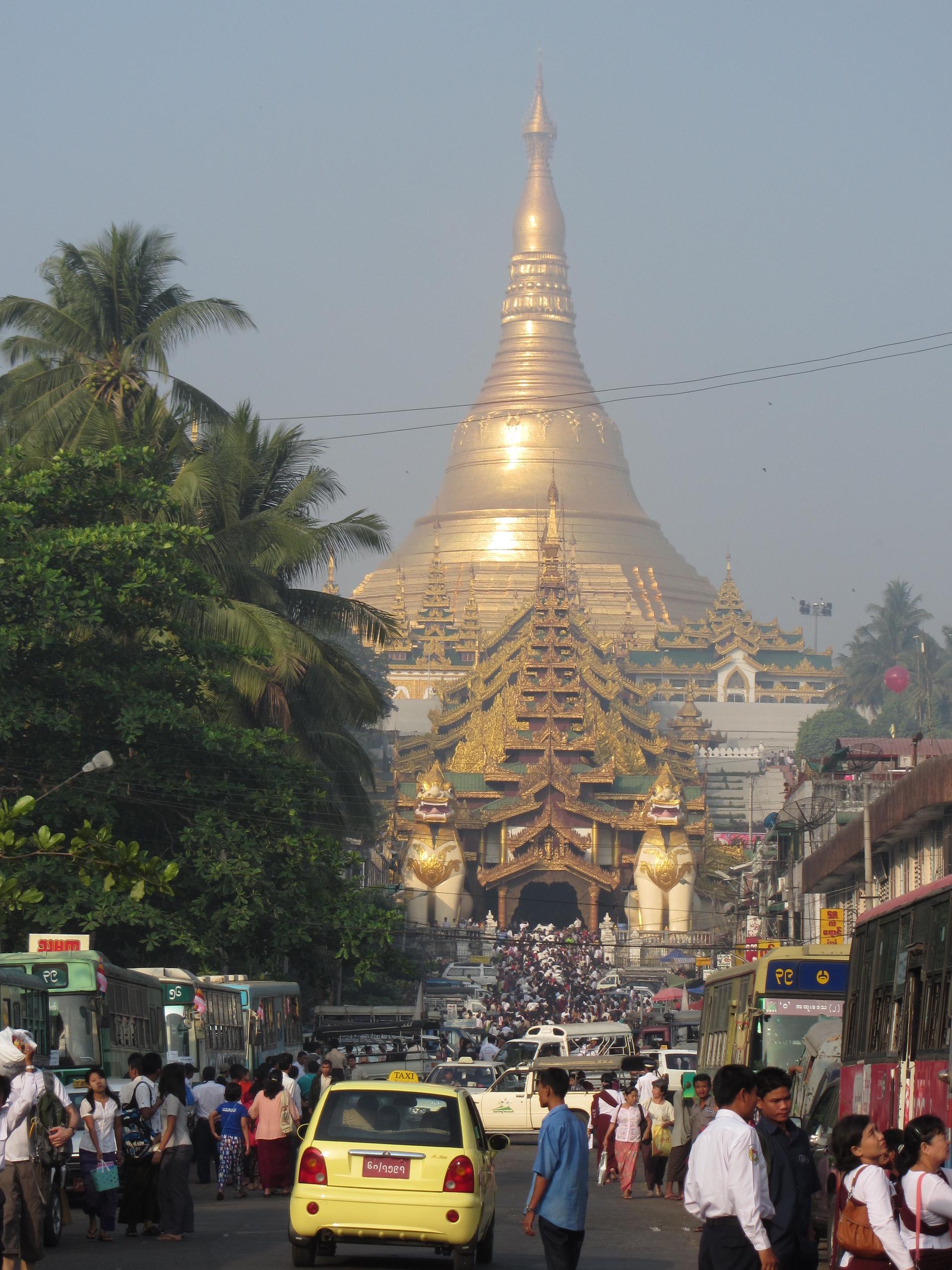
“In terms of connectivity, I feel like it can only help and not hurt, the more transparency there is, the more openness there is, the more connected the citizens are, the more connected the military is to the citizens, and remove them from this isolation, of the way the rest of the country is feeling. It can only move the country toward a much more positive direction.”
Then again, mobile phones, and the internet, are tools that can be used both for positive and less positive pursuits. Aung San Suu Kyi herself said in a mid-January letter to the organizers of the Nobel-Myanmar Literary Festival that too many young people in Myanmar are "wasting time" on social media and video games, now that they have mobile phones. "Our lifestyles are changing nowadays as technology improves," she wrote. "Now our children waste a lot of time on computer games, video games and social networks. Children read less because the use of technology has increased."
Sound like a complaint that might be made by older observers in any number of modern societies today? Exactly. Burma has joined the world.
Links:
Our coverage reaches millions each week, but only a small fraction of listeners contribute to sustain our program. We still need 224 more people to donate $100 or $10/monthly to unlock our $67,000 match. Will you help us get there today?
